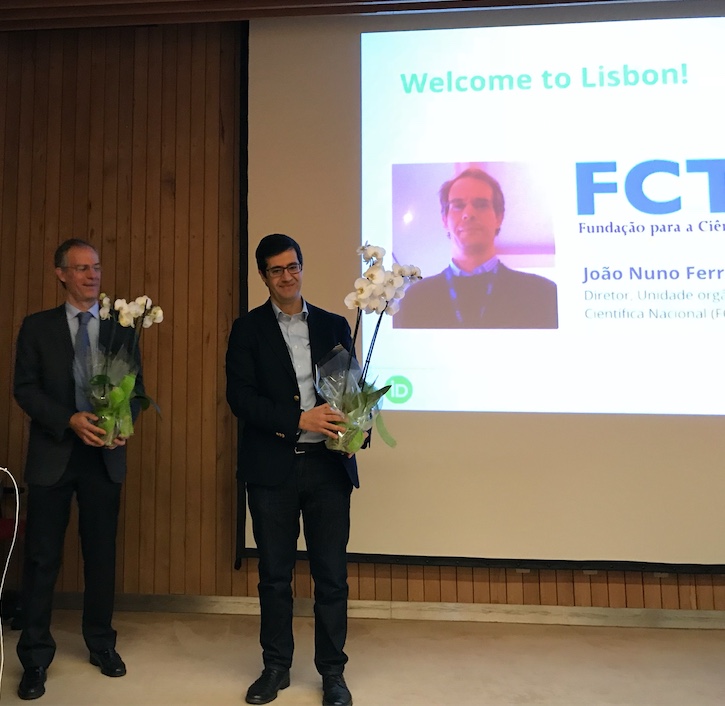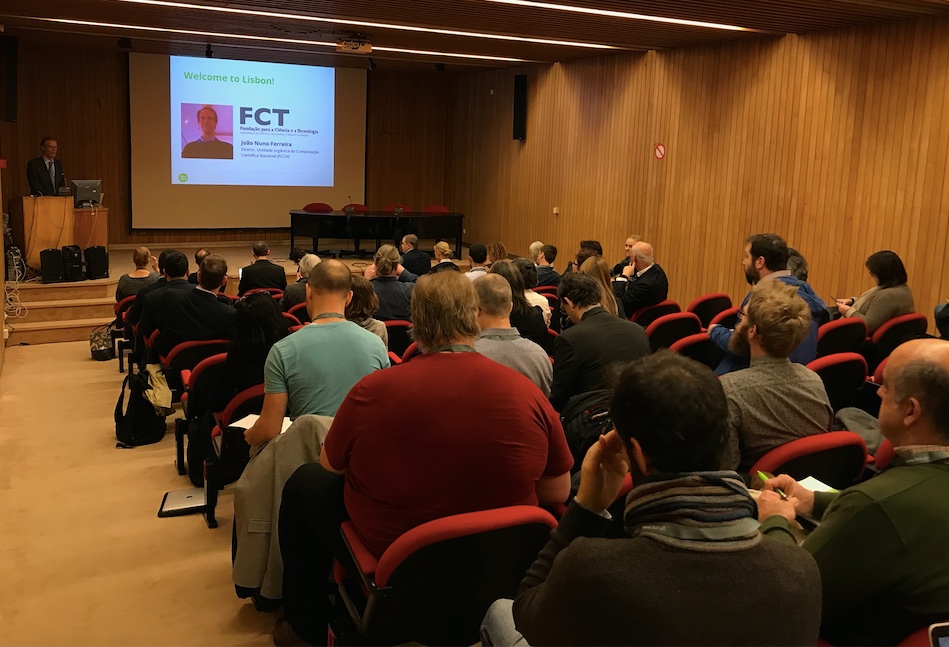 We held our first-ever consortia workshop in Lisbon, Portugal on 17 January. Hosted by FCT (Fundação para a Ciência e a Tecnologia), the workshop grew out of our 2017 survey of ORCID consortia, in which facilitating communication between consortia was a clear point of feedback. Representatives from most consortia lead organizations – including the recently formed Brazilian and Norwegian consortia attended, and we also welcomed participants from Japan, Russia, Slovakia, and Portugal, where there are nascent discussions about forming an ORCID consortium.
We held our first-ever consortia workshop in Lisbon, Portugal on 17 January. Hosted by FCT (Fundação para a Ciência e a Tecnologia), the workshop grew out of our 2017 survey of ORCID consortia, in which facilitating communication between consortia was a clear point of feedback. Representatives from most consortia lead organizations – including the recently formed Brazilian and Norwegian consortia attended, and we also welcomed participants from Japan, Russia, Slovakia, and Portugal, where there are nascent discussions about forming an ORCID consortium.
In addition to plenary panel discussions, attendees met informally during breaks and a poster session. To quote one attendee: “The workshop … was an exceptional occasion to  meet and talk to other consortia about similar challenges.” At the closing reception we recognized five consortia that have gone above and beyond in their support for ORCID – more on that in this post!
meet and talk to other consortia about similar challenges.” At the closing reception we recognized five consortia that have gone above and beyond in their support for ORCID – more on that in this post!
So, what did we learn? Here are the five key takeaways that ORCID Board member, Linda O’Brien highlighted in her closing remarks.
1. Context. We need to take time to understand the different national and regional contexts in which ORCID consortia operate. While there are shared opportunities and challenges, there are also issues that may be especially important, if not unique, to a consortium. These include regulatory issues (for example, data privacy in Germany); national infrastructure (such as the national CRIS system in New Zealand); various levels of university and/or researcher autonomy; and national evaluation policies (such as in Italy).
2. Benefits. Articulating the benefits of ORCID to all stakeholders is critical. We need to ensure that there is a clear understanding of why ORCID is useful and that adoption involves communications and technical work across stakeholder groups, each of which contributes and benefits. It’s especially important to make sure that the benefits for researchers are clear and immediate.
3. Momentum. Maintaining the momentum around ORCID adoption is challenging but essential, whether at the national, regional, local, or individual researcher level. Forming a consortium is just the first step.
4. Skills. Consortia must employ a range of skills to communicate best practices for using ORCID, to share experiences, encourage collaboration, and build community. Expertise in change management, coaching, communication, technical support and development, is essential.
5. ORCID is a lifestyle! Building sustainable ORCID communities of practice is a long-term commitment that requires ongoing engagement between research organizations and their researchers across all sectors. Ultimately, the goal is to improve how research information is shared.
Where to from here? In an informal poll at the end of the meeting, attendees indicated a strong interest in participating in regular consortium workshops, and based on that, we are looking at hosting a meeting for all our consortia mid-year in 2019. In the meantime, we invite you to visit our Consortium pages for more information, and to share the workshop resources, which can be found in the Events section of the ORCID repository.
